Wavicles
A digital poem on wave-particle duality created in 3D Poetry Editor software (2017)
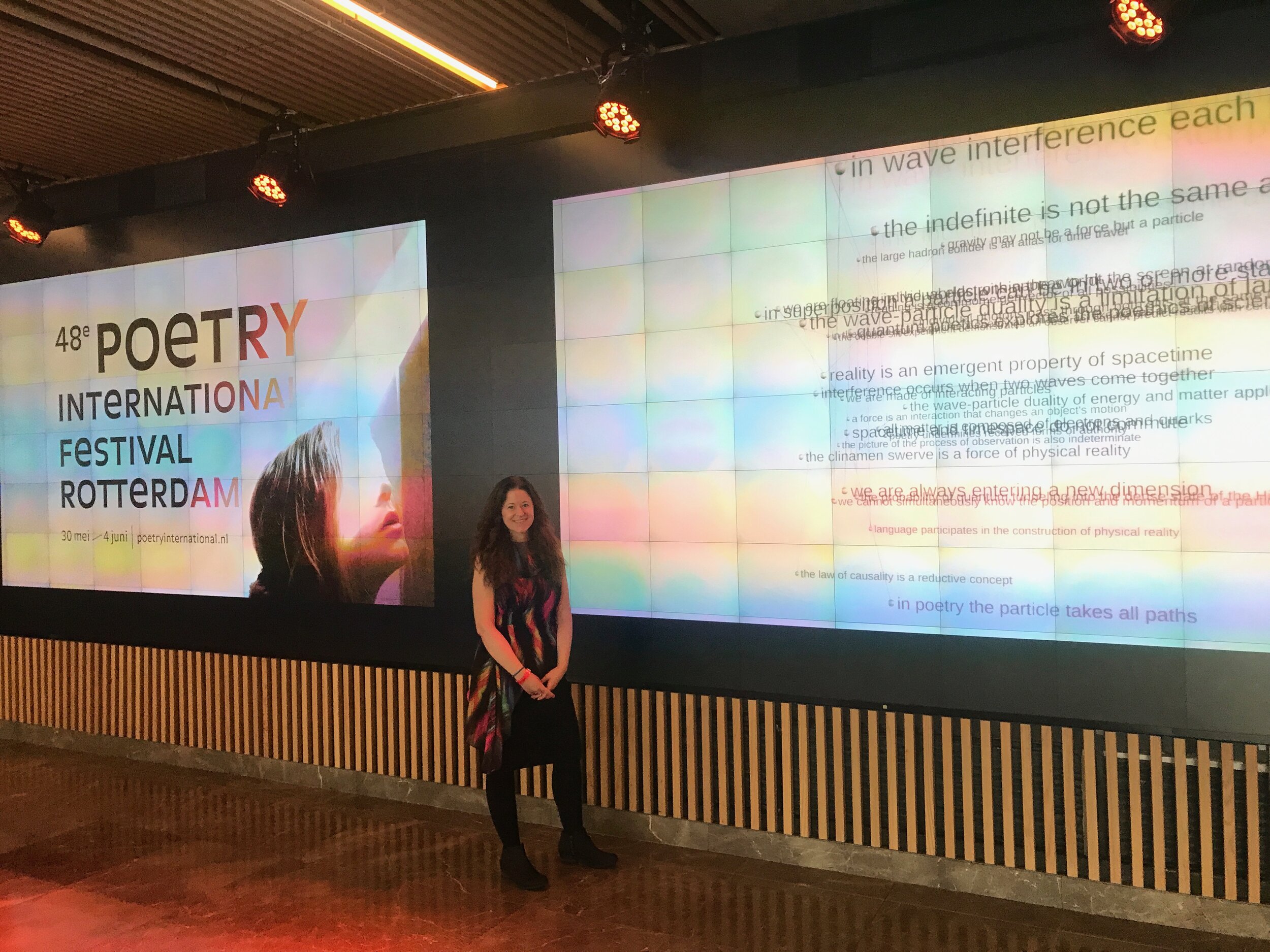
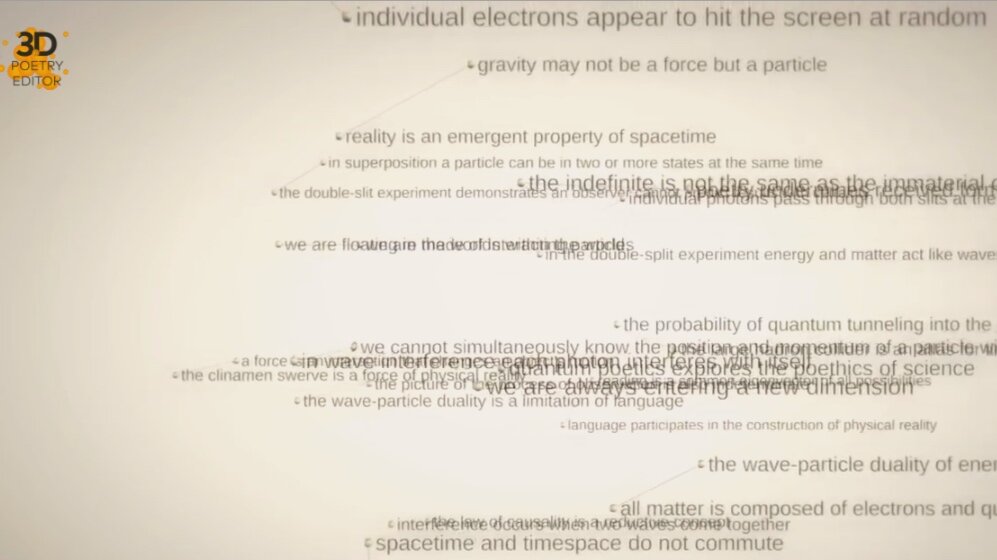
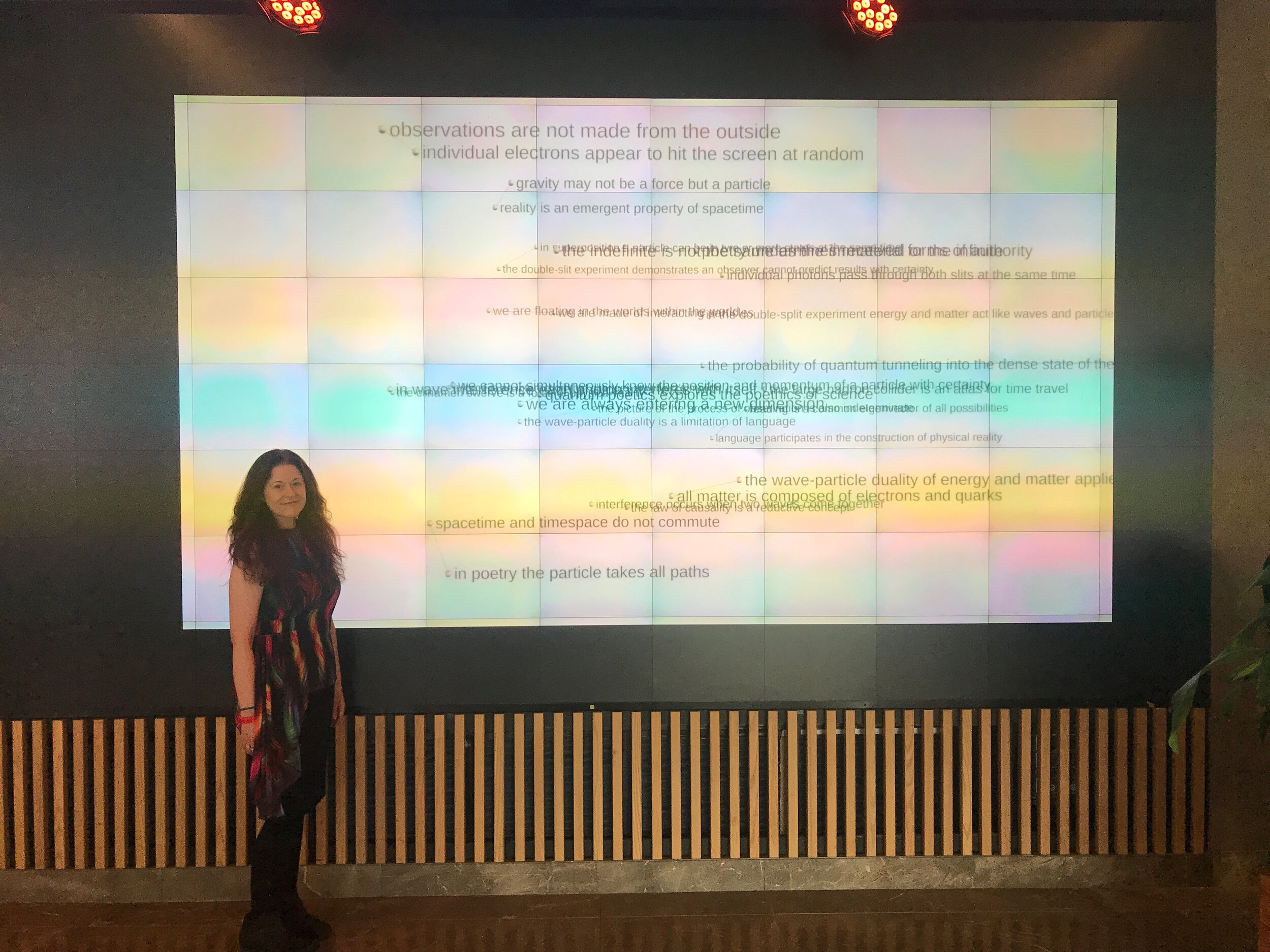
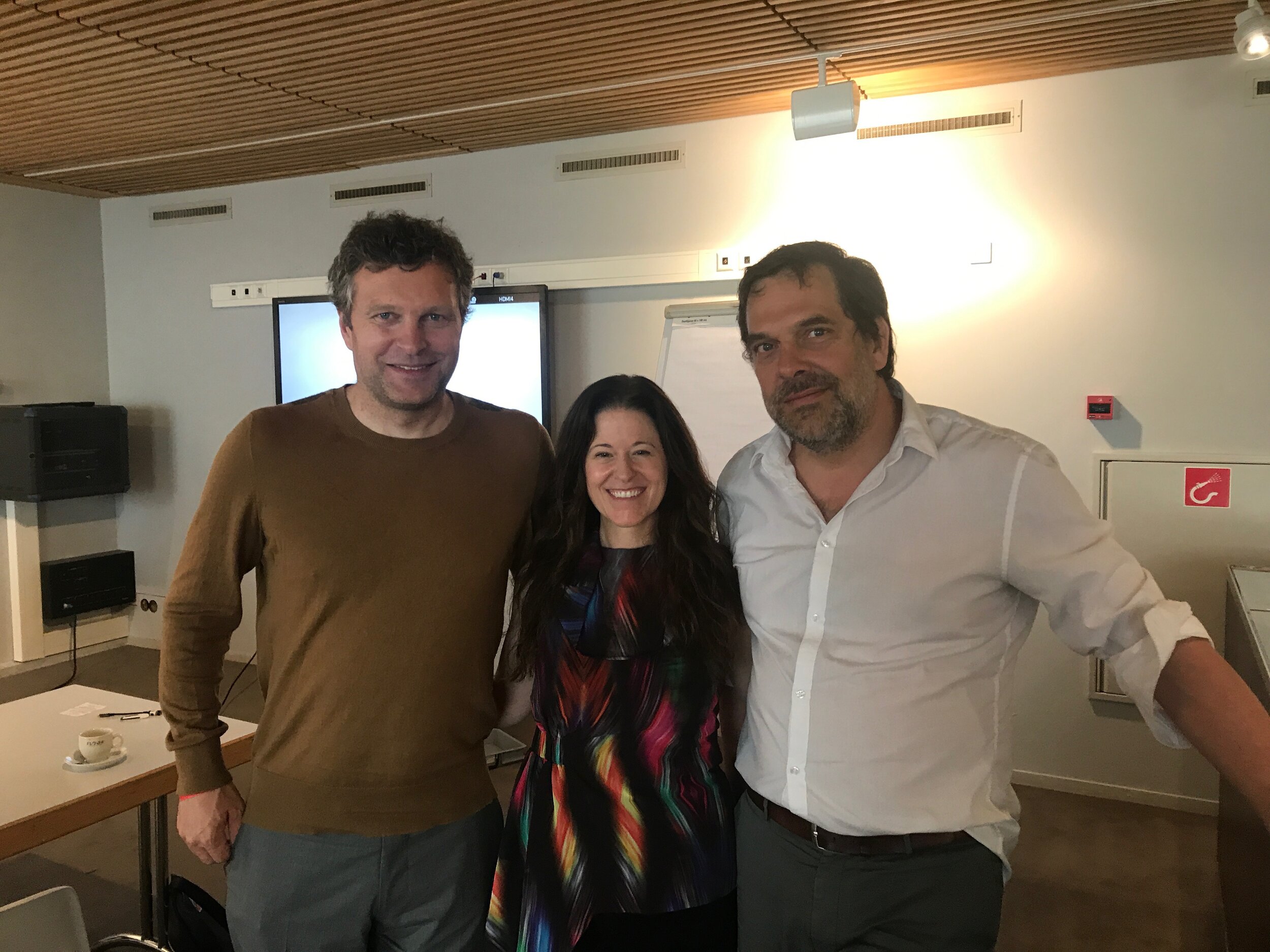
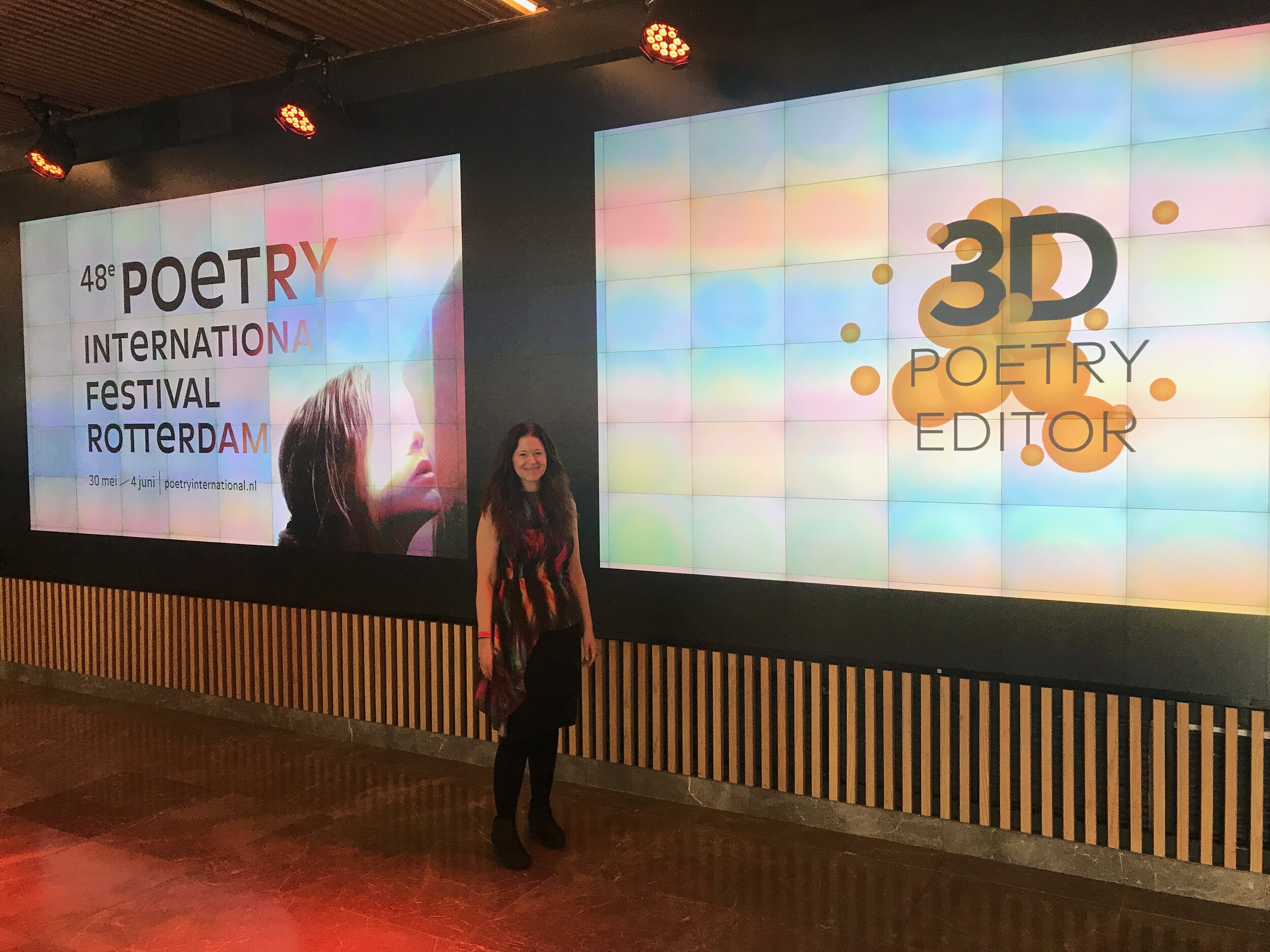
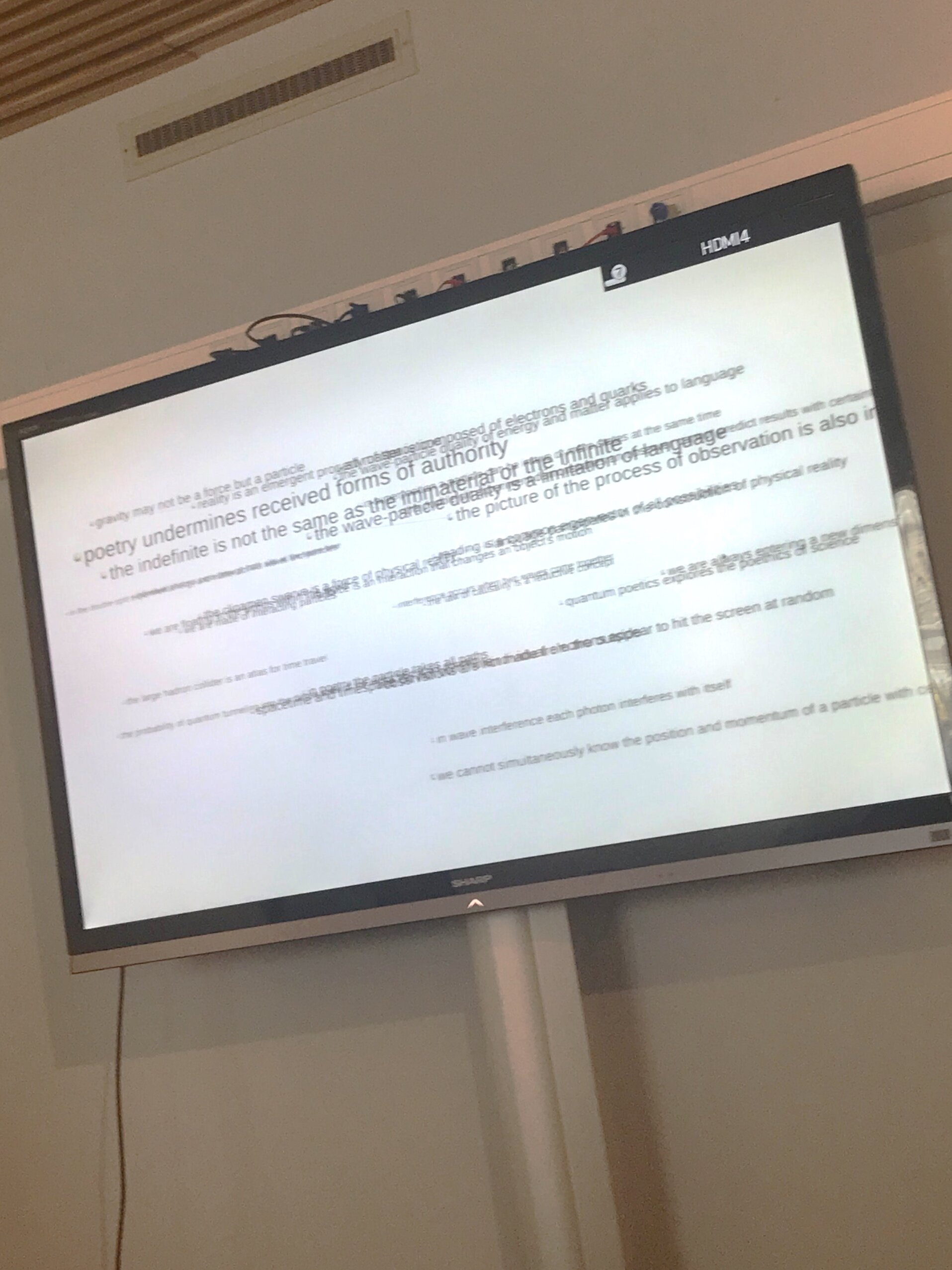
3D Poetry Editor is a text editor for composing moving poems in three dimensions, using three-dimensional structures, and reading and distributing three-dimensional poems. It allows writers to compose poems in a virtual three-dimensional space. 3D Poetry Editor adds depth to the two dimensions on which lines of written poetry are usually positioned. Writing in this space and connecting words, lines, or complete stanzas creates a three-dimensional structure that enables reading in multiple directions. The reader can navigate the three-dimensional space, read the poem, and explore its spatial construction.
3D Poetry Editor was developed by the Dutch media artist Michiel Koelink, the Norwegian poet Jon Ståle Ritland, and the Portuguese programmer David Jonas. The application is created with Unity, a program for creating 3D-games. 3D Poetry Editor runs on most current platforms (Windows, Apple, Linux) and can also be embedded in websites. Poems written in the software are saved as .3dpff files. 3D Poetry Editor is open source and published under a Creative Commons license.
14 poets worldwide were commissioned by the software’s developers to first explore its potential as a vehicle for electronic literature. The poems were filmed in motion and can be “read” by clicking on each poet’s name on the 3D Poetry Editor website. The poems can also be read by downloading the software from the website. This group of poems was part of an exhibition, The Gravity of Words, that showed at the Rotterdam International Poetry Festival, the Oslo Poesifilm Digital and Visual Poetry Festival, and elsewhere. —from the 3D Poetry Editor website
statement of poetics
Wavicles is a moving, digital poem on wave-particle duality and related topics written in the software program, 3D Poetry Editor. It was part of the exhibition, The Gravity of Words, at the Rotterdam International Poetry Festival in The Netherlands, the Oslo Poesifilm Digital and Visual Poetry Festival in Norway, and elsewhere.
A wavicle is an entity in physics that simultaneously has properties of both a wave (light) and a particle (matter). Wave-particle duality demonstrates the limitations of using classical mechanics—Newtonian physics—to fully describe the properties of light and matter at the quantum scale. Wavicles suggests that poetry can function as a quantum system that has properties capable of resolving the classical paradox of wave-particle duality by exposing how paradox itself is a tenable concept in aspects of quantum theory such as wave-particle duality. Interacting with the particular rules that govern how text and space behave in 3D Poetry Editor, Wavicles tethers two lines of poetry together as “couplets,” foregrounding the dual nature of light and matter as both waves and particles. Untethered text nodes push each other away as the central gravity of the program pulls the text inward.
While the couplets keep the poem visually accessible as the lines drift and overlap across the screen, there is no linear progression of text, no beginning or end, and a range of text sizes and movement are at play. This lack of traditional form in the poem highlights the lack of classical logic in wave-particle duality. Further, the lines of the poem have a wave-like quality in motion, evoking light, while the text nodes that connect the couplets evoke the metaphor of point-like particles. It is in these ways and others that the poem aims to creatively respond to the unique spatial and temporal properties of 3D Poetry Editor software while performing a literary-artistic interpretation of wave-particle duality.
The full list of contributing poets for The Gravity of Words exhibition curated by 3D Poetry Editor are Adam Dickinson (Canada), Amy Catanzano (United States), Sampurna Chattarji (India), Maria Malinovskaya (Russia), Daniël Dee (Holland), Derek Beaulieu (Canada), Mortan Søndergaard (Denmark), Mani Rao (India), Nils Christian Moe-Repstad (Norway), Laura Accerboni (Italy), Jan Baeke (Holland), angela rawlings (Iceland/Canada), Mamta Sagar (India), and Jon Ståle Ritland (Norway).